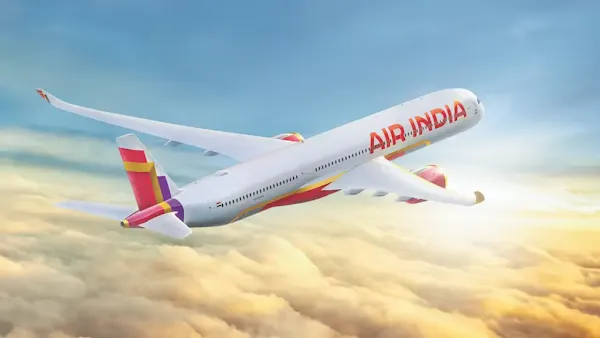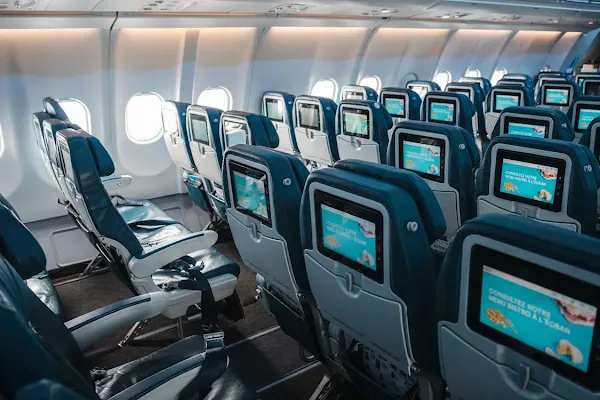Flying with kids on domestic flights in India can be both exciting and challenging. As a parent, I vividly remember my first flight with my toddler from Delhi to Mumbai on IndiGo. The priority boarding allowed us to settle in calmly, and the crew’s assistance made the journey stress-free. Understanding airline policies can transform your travel experience. Airlines like Air India, IndiGo, SpiceJet, and Vistara offer family-friendly services such as priority boarding, special seating arrangements, and assistance for unaccompanied minors. This guide covers everything you need to know about required documents, boarding policies, and seating rules to ensure a smooth journey for your family.
Table of Contents
- Proof Required for a Child on Domestic Flights
- Boarding Requirements for Children
- Rules for Children on Air Tickets
- Seating Policies for Parents and Children
- Priority Boarding for Families
- Child Traveling with a Family Friend
- Unaccompanied Minors on Domestic Flights
- Age Limits for Children on Domestic Flights
- Frequently Asked Questions
Proof Required for a Child on Domestic Flights
For children under 12 traveling on domestic flights in India, airlines typically require proof of age. Acceptable documents include a birth certificate, passport, or Aadhaar card. Infants under 2 may also need a birth certificate to verify their age, especially if traveling on a lap without a separate seat. Always check with the airline, as requirements may vary. For example, IndiGo specifies a birth certificate for infants.
Boarding Requirements for Children
Children need a valid ticket and age proof to board domestic flights. Infants under 2 can travel on a parent’s lap, but airlines like SpiceJet may require a separate boarding pass for infants. Parents should carry identification for themselves and their children, such as an Aadhaar card or passport, to comply with airport security protocols. For detailed requirements, refer to Travel Documents Required for Infant or Child Under 2.
Rules for Children on Air Tickets
In India, children aged 2 to 12 require their own seat and ticket, often at a discounted fare. Infants under 2 can travel on a parent’s lap for a nominal fee or free, depending on the airline. For instance, Air India offers free travel for infants on domestic flights. Always review the airline’s policy, as detailed in Does a Child Pay Full Price for Airline Tickets in India? and Airline Tickets for Babies and Infants in India.
Seating Policies for Parents and Children
Airlines in India prioritize seating parents and children under 12 together at no extra cost, as mandated by aviation regulations. Learn more at Kids Under 12 Must Sit with Parents on Flights – No Extra Fees!. However, on fully booked flights, seat assignments may not always be guaranteed. If seats are not pre-selected, families may be separated, but cabin crew typically assist in rearranging seats. For tips on ensuring a smooth flight, see Drama-Free Flights with Children.
Priority Boarding for Families
Most Indian airlines, including Vistara and IndiGo, offer priority boarding for families with children under 5 or 6. This allows extra time to settle in and stow luggage. Policies vary, so confirm with your airline before travel.
Child Traveling with a Family Friend
A child can travel with a family friend, provided the parents submit a consent letter, the child’s birth certificate, and copies of the parents’ identification. This ensures compliance with airline and airport regulations. For a sample consent letter, see Parental Consent Letter for Child Travel.
Unaccompanied Minors on Domestic Flights
Children aged 5 to 12 can travel alone using the Unaccompanied Minor (UM) service offered by airlines like IndiGo. This service provides supervision and assistance throughout the journey. Older children (12 and above) may travel without UM services, but parents can opt for it for added peace of mind. Learn more at Do Minors Need Identification to Travel? and Consent Letter for My Child to Fly Alone.
Age Limits for Children on Domestic Flights
Infants under 2 travel on a parent’s lap without a separate seat, while children aged 2 to 12 require their own seat. Age limits and policies vary slightly by airline, so check with carriers like Indian aviation authorities or the airline’s official website for specifics. Additional tips are available at Flying with Baby and Travelling with Infants in Flight.
Frequently Asked Questions
What proof is required for a child on domestic flights in India?
A birth certificate, passport, or Aadhaar card is typically required to verify a child’s age. Infants under 2 may need a birth certificate.
What do children need to board a domestic flight?
Children need a valid ticket and age proof, such as a birth certificate or Aadhaar card. Parents should also carry their own ID.
What are the rules for children on air tickets in India?
Infants under 2 travel on a parent’s lap for free or a small fee, while children aged 2 to 12 require a seat and may get discounted fares.
Do airlines have to seat parents and children together?
Airlines prioritize seating parents and children under 12 together at no extra cost, but separation may occur on full flights.
Can children be separated from parents on a plane?
Separation is rare but possible on fully booked flights. Cabin crew typically assist in rearranging seats.
What happens if you don’t select seats on a flight with kids?
If seats aren’t pre-selected, families may be separated, but airlines often help reassign seats to keep parents and children together.
Why Is Talcum Powder Banned on Flights in India?


















